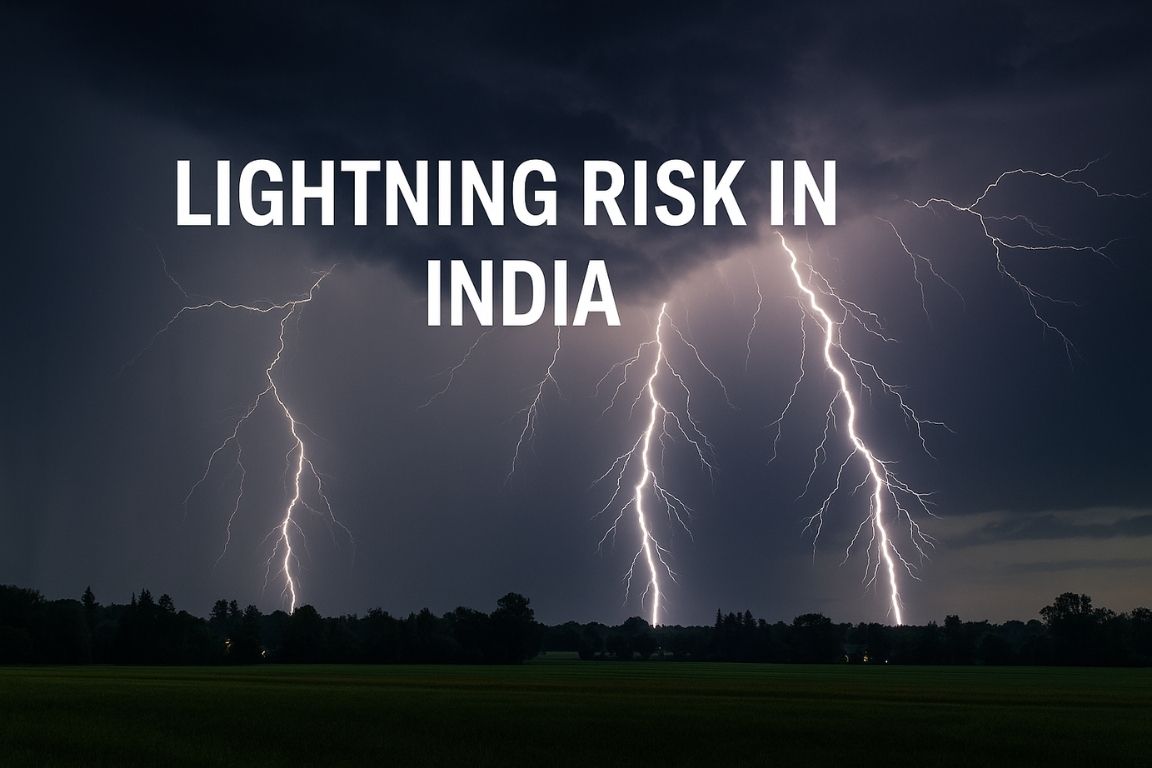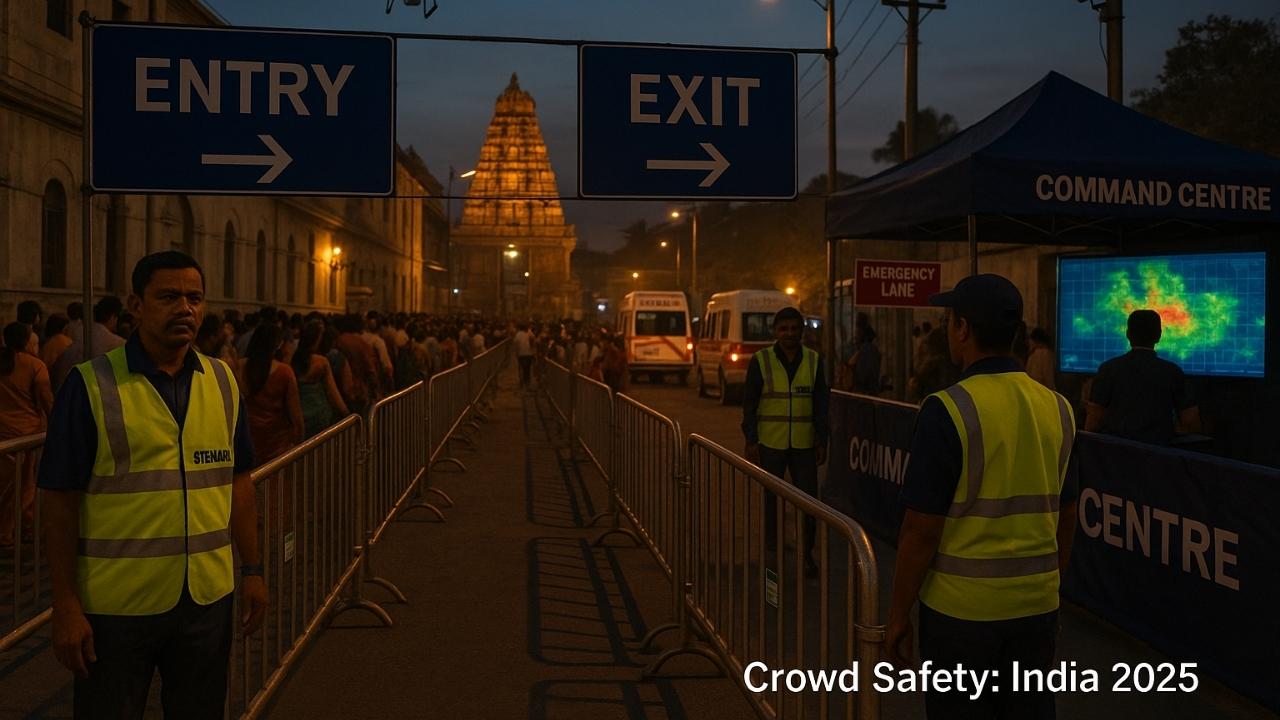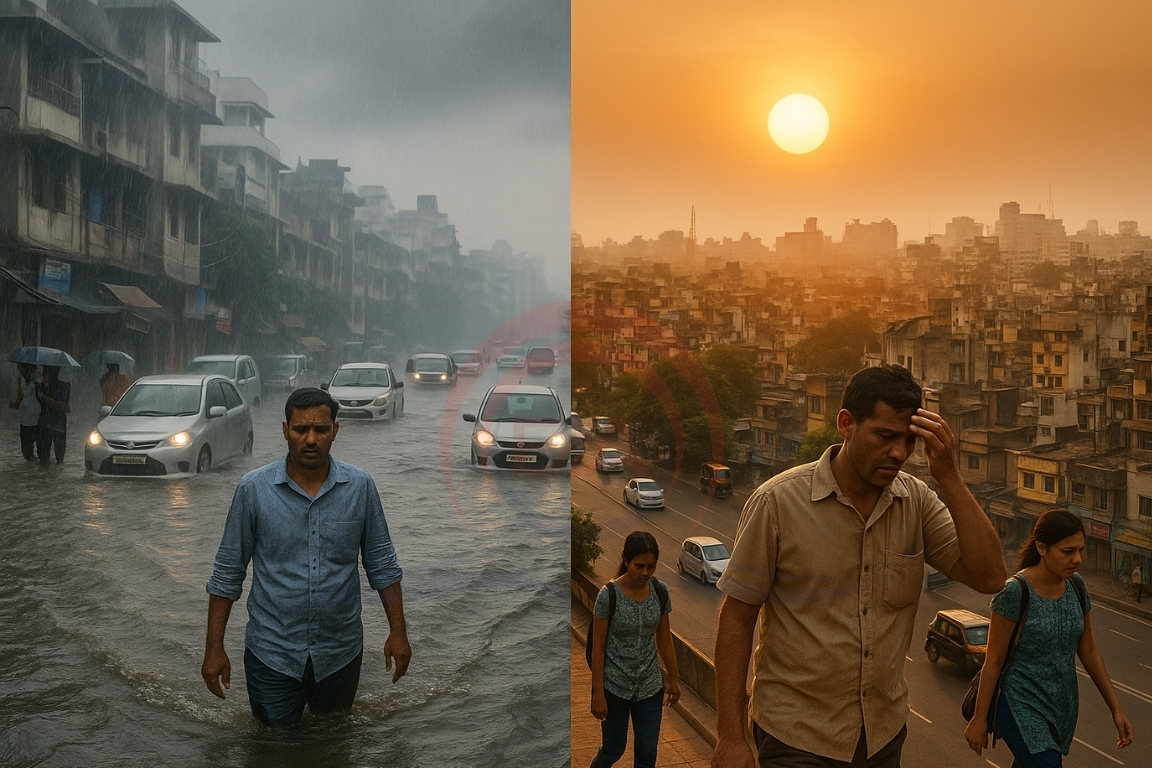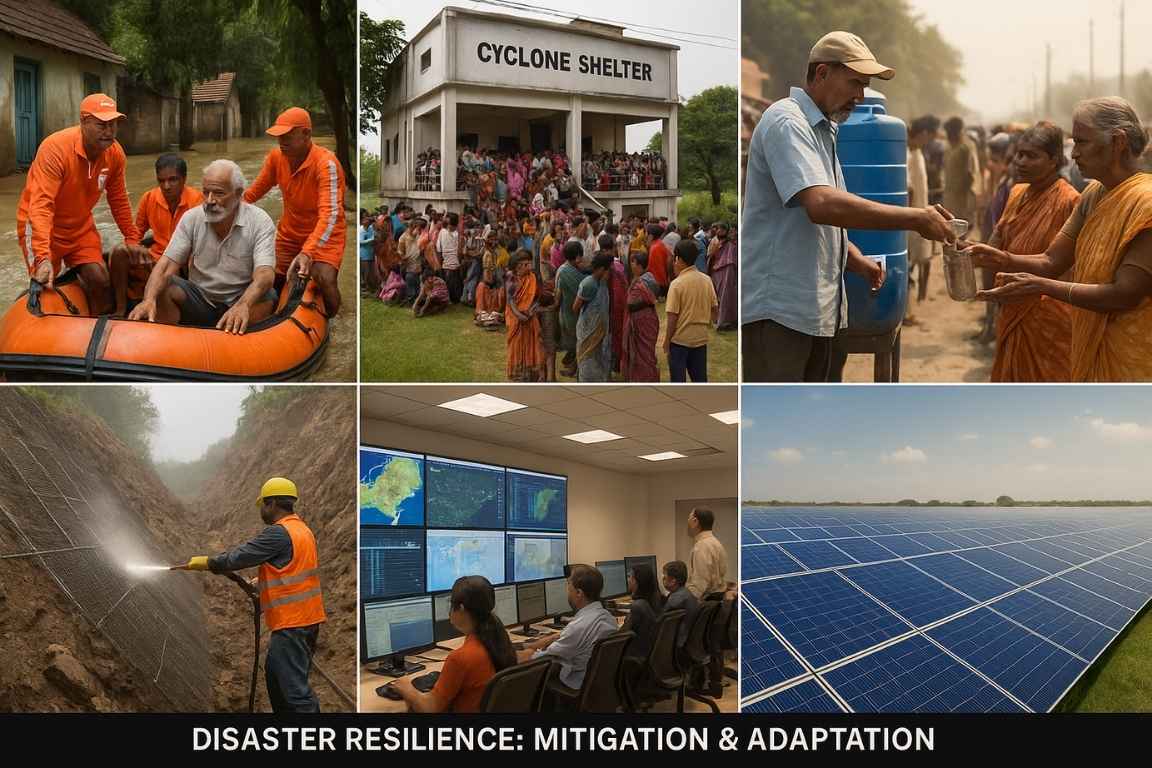According to the NCRB’s 2023 report “Accidental Deaths and Suicides in India”, lightning caused the single largest natural killer in India in 2023.
Key Findings
- Total Deaths (2023): 6,444 deaths due to natural forces; lightning caused the highest share.
- Most Affected States:
- Madhya Pradesh – 397 deaths
- Bihar – 345
- Odisha – 294
- Uttar Pradesh – 287
- Jharkhand – 194
- Rising Trend: 400% increase in lightning strikes between 2019-20 and 2024-25.
- Policy Gap: Lightning is not listed as a centrally notified disaster under the Disaster Management Act, 2005.
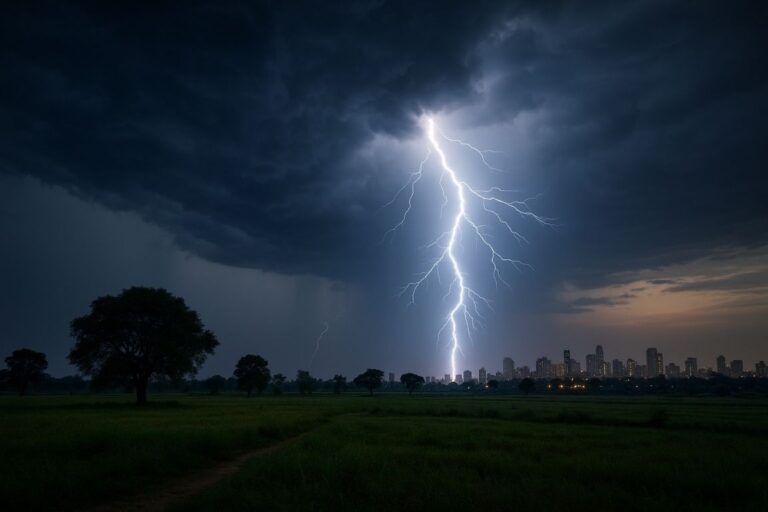
Understanding Lightning
- Definition: A massive electric discharge between cloud and ground.
- Mechanism: When electric potential exceeds 3 million volts per meter, air breaks down as an insulator → electric current flows → flash of light (lightning) and sound wave (thunder).
Reasons for Increasing Lightning Events
- Geographical Factors: High humidity and coastal climate in eastern India increase thunderstorms.
- Monsoon Dynamics: Rising moist air and strong convection during monsoon season fuel lightning.
- Urbanisation & Heat Islands: Cities emit more heat and aerosols, creating conditions for thunderstorms.
- Climate Change: Each 1°C temperature rise increases lightning frequency by 8–10%.
- Agricultural Practices: Stubble burning and deforestation release particulates that enhance storm activity.
Government Measures
- CROPC’s Lightning Early Warning System: Provides advance alerts.
- SACHET App: Warns public about lightning risks.
- Damini App (IITM Pune): Monitors real-time lightning activity.
- NDMA Guidelines: Promote awareness and safety measures.
Way Forward
- Include Lightning in the national disaster list for dedicated funding.
- Enhance early warning systems and ensure last-mile communication.
- Community Training for quick response during alerts.
- Public Awareness drives on safe shelters, especially during monsoons.
- Enforce NDMA protocols at local levels to minimize casualties.


